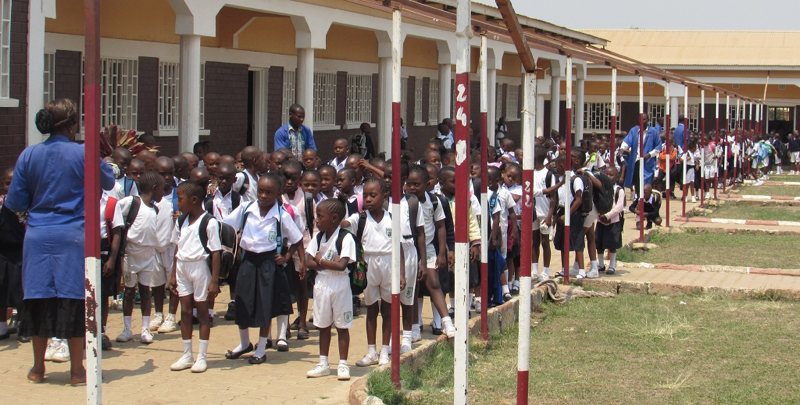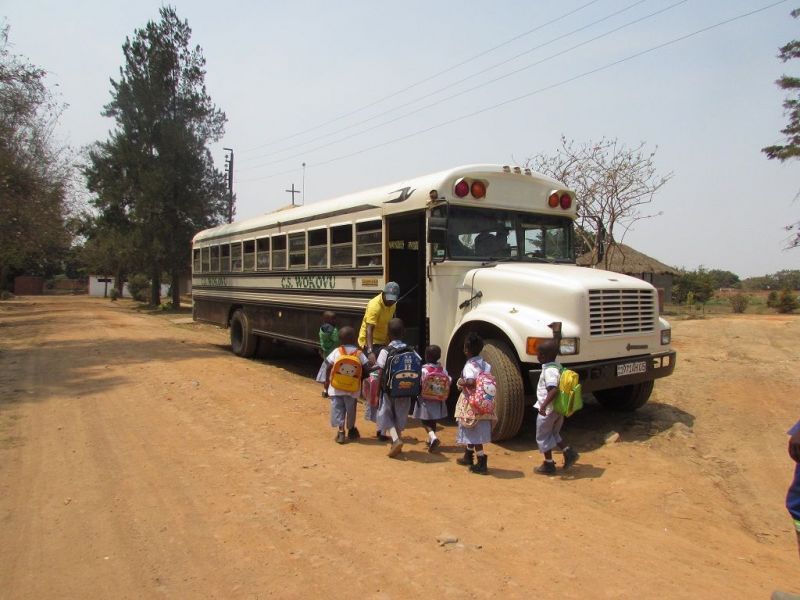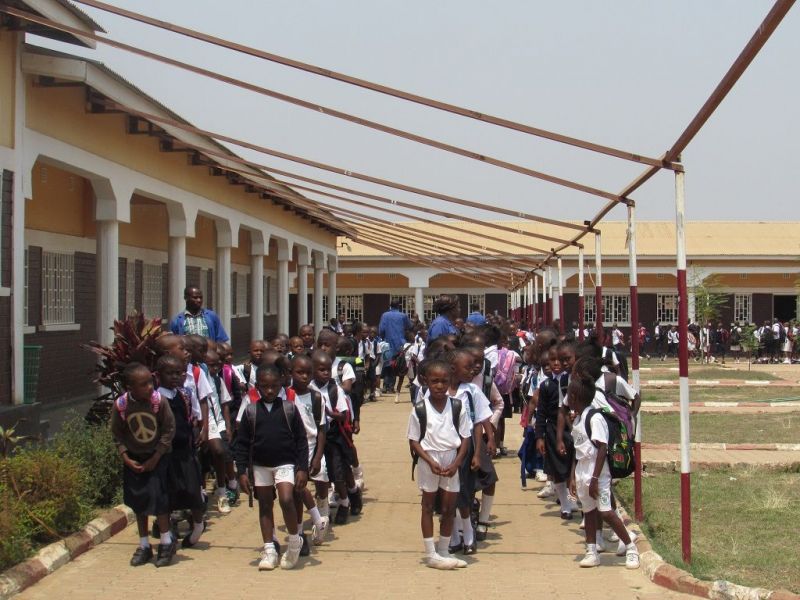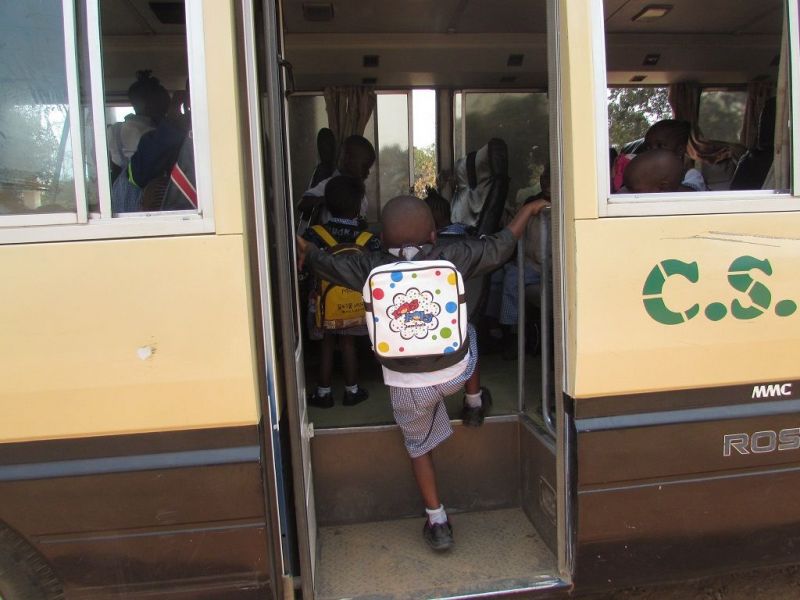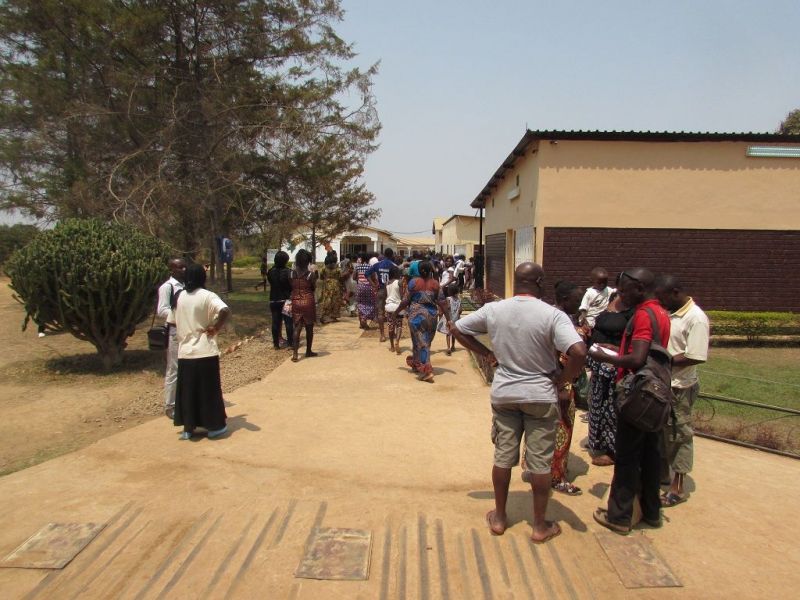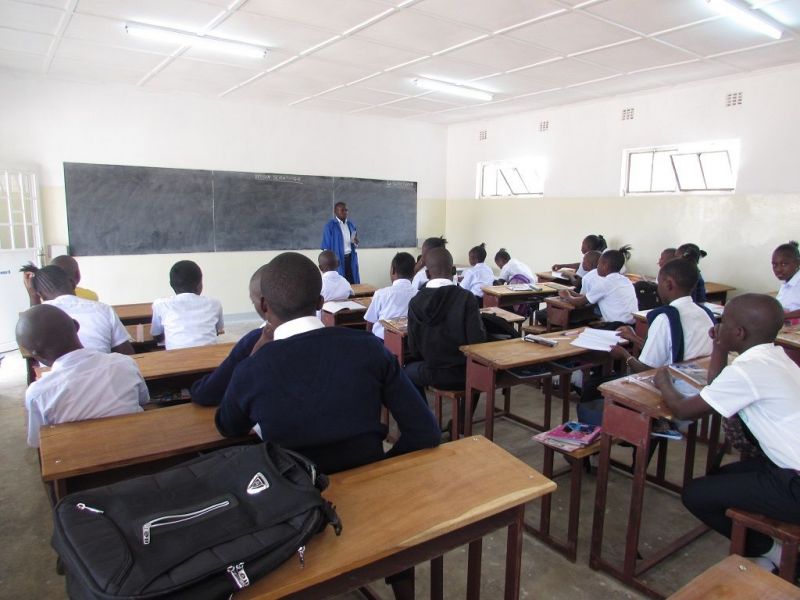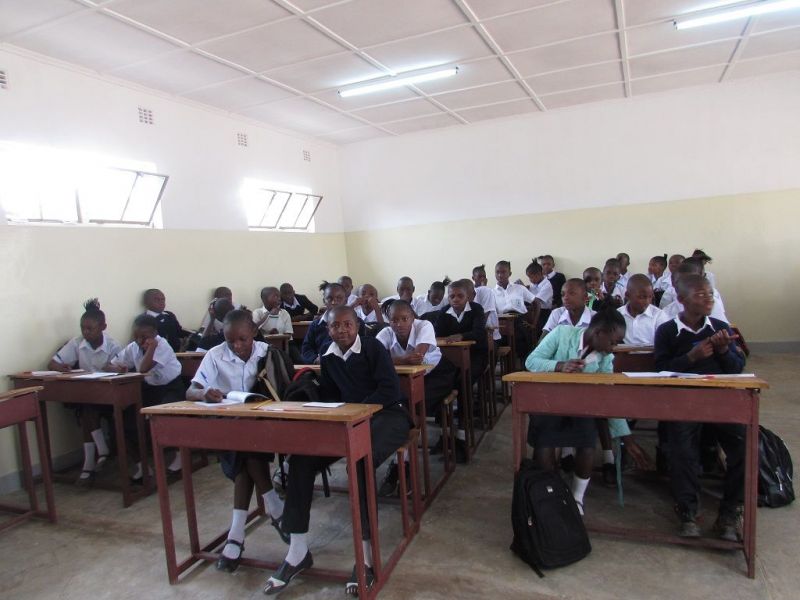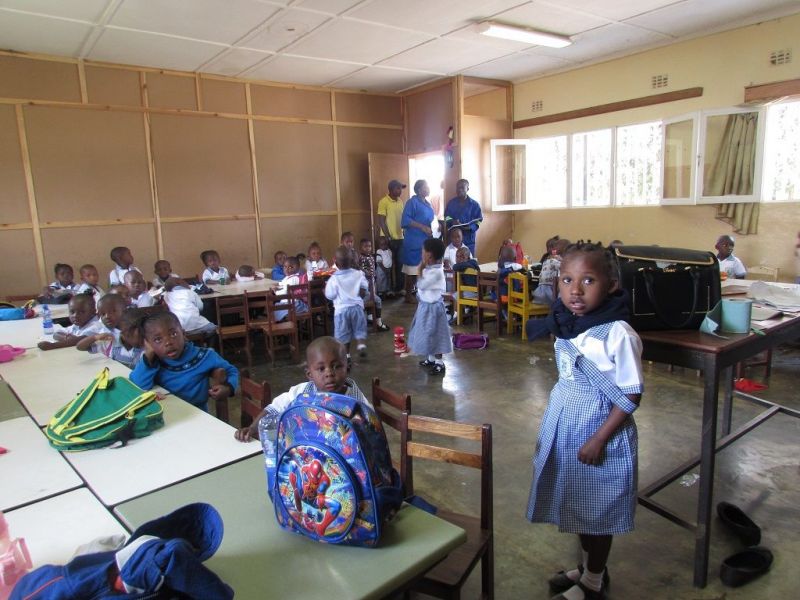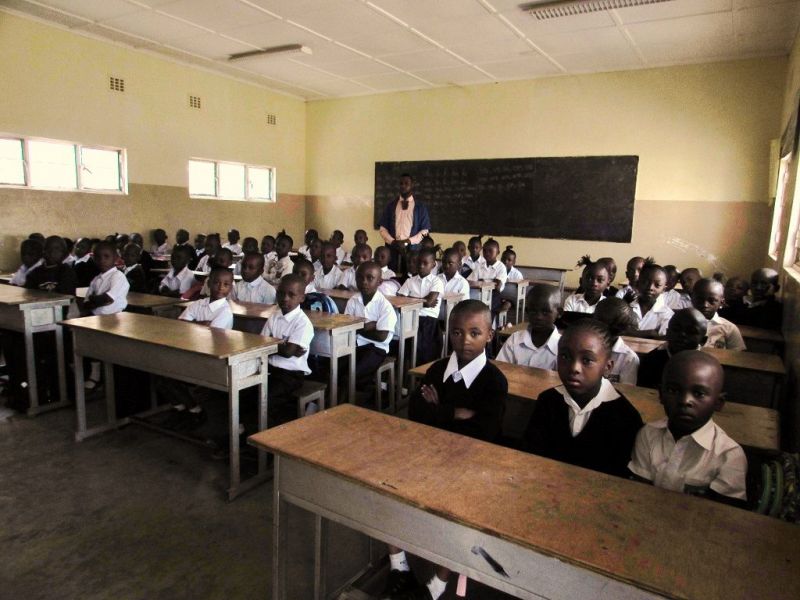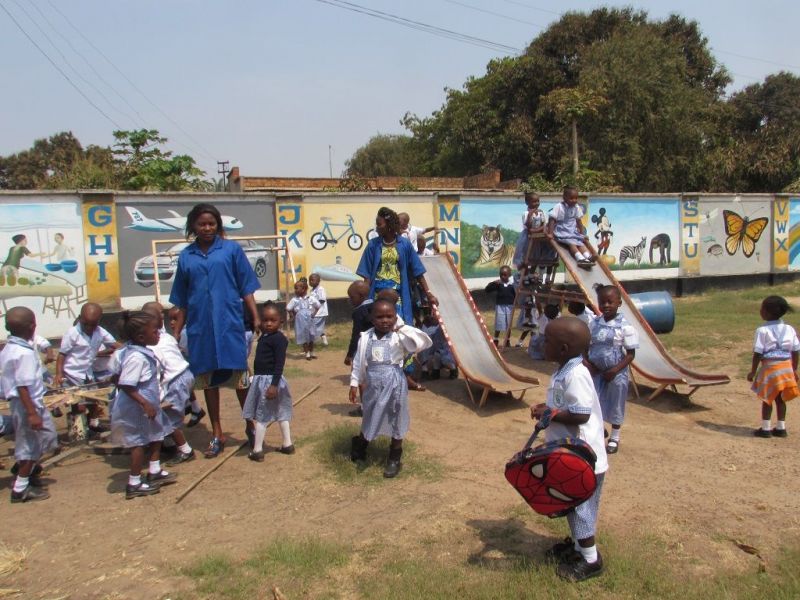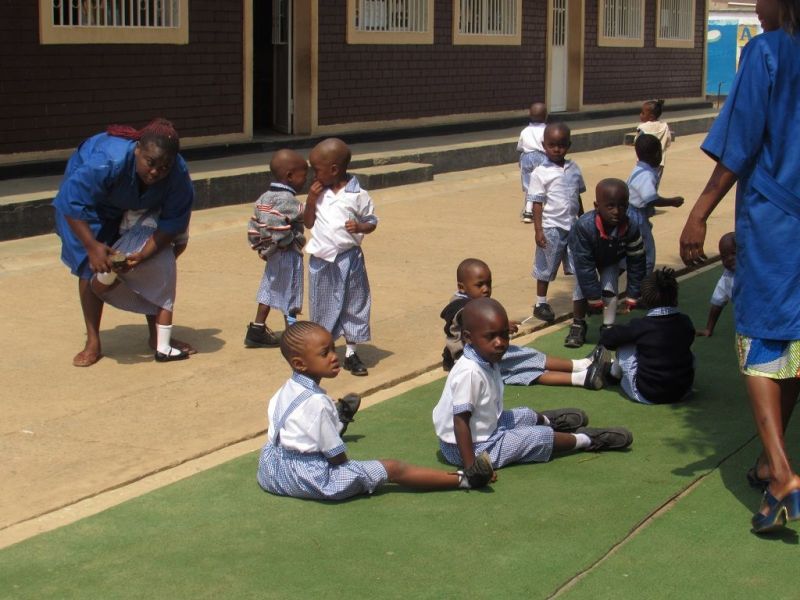“Wokovu” is Swahili and means “Salvation”. Through the means of education, the Congolese Pro-Province is helping the work of salvation for over 6,000 children and teenagers.
The Wokovu Educational Complex
The Congolese Pro-Province created a Salvatorian school complex in the Bel Air district of Lubumbashi, using the spacious piece of land around their novitiate house. The Bel Air quarter has more than 60,000 residents, of which more than half are children under 15 years of age. The educational infrastructure is simply not sufficient and where it exists, often of poor quality. Responding to continuous requests from families to invest in the education sector, the Salvatorians set up first a kindergarten in 2009. This was followed by a primary school three years later, the capacity of which has doubled in 2014. As of now, there are around 600 children attending the KG and nearly 950 the primary school. During the past year, the first phase of a new technical secondary school has been constructed, with the assistance of SOFIA Global and managed by the SOFIA Congo office. On September 6, 2017 the new school year was inaugurated at the Wokovu school complex. Much to their joy, the first 175 children started using the new building with 9 classes.
Wokovu Technical School
Why opt for a technical secondary school? Before the actual start of fundraising, two independent experts carried out a needs assessment with regard to the need of secondary education in the area. The outcomes were very clear:
• there is an urgent need for more secondary education places;
• there is a growing need to focus on technical education in order to cater to the growing technological demands and transformation of society – the overall problem is the underdeveloped technical education across the DRC including the Katanga Province;
• in line with the official governmental policy, the Salvatorians wish to increase the enrolment of female students, especially with regard to technical education.
Based upon the actual societal needs in the town of Lubumbashi and the wider region surrounding it, it was decided to offer specialized education in computer sciences, electricity (to become an electrician), and electronics (to become an electrical technician). The intended outcomes of this project will be:
• enhancement of the technical skills of youth;
• improved infrastructure & technology;
• creation of job opportunities for women;
• concretely influence society towards a more just income distribution;
• general contribution to economic growth.
The past 8 years have shown a very good track record of the Salvatorian educational efforts in the quarter of Bel Air with the positive evaluation of the pre-school and primary education which the Pro-Province offers. The completion of the full school cycle with a secondary department is therefore only the logical continuation of the past initiative.
Planning and execution of the project
The construction of the full secondary school infrastructure is foreseen over a 5 year period and is spread over three phases. September 2017 saw the completion of the first phase, which consisted of the construction and the equipment of one building with nine classrooms. The construction was completed within the set time frame and within the planned budget.
The next two phases consist in the construction and furnishing of
• one additional building with five classrooms;
• the administration block, which includes also a library and a computer laboratory;
• the auditorium of the school complex.
The auditorium will be used by all the schools in the Wokovu educational complex, as well as for extracurricular activities and the organization of events (social, religious and civil). By having a strong impact on the education of thousands of youth and by using the auditorium facility for all kinds of gatherings, the Salvatorian community at Bel Air will obtain a high visibility and holds in its hands an instrument, which will influence for the better the entire surrounding quarter.
Track record in-country
From the beginning of the Salvatorian mission in Congo in 1954, our members have been involved in education and schools. Every mission station and every community has primary and secondary schools attached to them, or at least the missionaries and parish priests serving the area are involved in the management and oversight of the schools. The mission of the Salvatorian schools is to give formation to youth by providing quality education facilitating a smooth integration into society. It is with such a holistic approach that we hope to empower the young generations of Congolese into becoming drivers of socioeconomic transformation.
In the town of Lubumbashi and the surrounding area, the Wokovu school complex does not stand isolated on its own. The Salvatorians lately became quite active in creating more schools under their direction. Additional schools are under construction in the suburbs of Lubumbashi to cater to the need for more pupil places. With the help of SOFIA in project formulation and fundraising, the Pro-Province recently established or expanded
• the Fr. Jordan secondary school at Kashamata, in addition to the existing primary school;
• the St. Christophe secondary school at the parish St. Abraham in Kilobelobe;
• the Mkombozi primary school at Golf Maïsha.
School governance
Each Salvatorian school has a management committee, composed of the prefect of studies, the financial manager, the cashier and a representative of teachers. On the level of the Pro-Province a Salvatorian Schools Commission functions as an important governing body. Based on the Salvatorian vision of education, this commission deals with various topics relating to the schools, proposes solutions, and provides general guidance in the running of the schools. Its members are:
• the Executive Board (the provincial superior, the president of the Salvatorian Schools Commission, the provincial treasurer, the SOFIA Congo officer of the Salvatorians);
• the prefects of study of each school;
• the principals and head teachers of schools;
• teachers’ representatives;
• administrative staff.
Sustainability
Despite the volatile socio-economic situation in the DRC and the fact that the Congolese government does not pay the teachers and other staff, the Wokovu schools function autonomously thanks to their effective, lean and non-commercial management. As a result, running costs and school fees remain low and the teachers’ salaries are adequate and paid consistently ensuring a high quality. To cover extraordinary expenses, a school fund was created for all the schools run by Salvatorians in the DRC. This is a sort of solidarity fund, to which each school makes a small yearly contribution and can request aid if needed.
It is nice to see a young unit engage in basic education of the young generation, not only building the future of the nation, but also realizing in a specialized apostolate the Salvatorian mission of making the Savior known: “This is eternal life, to know you, the one true God, and Jesus Christ, whom you have sent.” (Jn. 17: 3). In order to be able to know, people need to be taught and instructed. That is why our focus on proclamation by all ways and means, one of them being formal school education.









